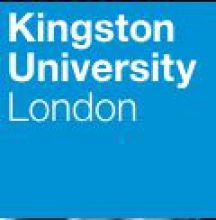The most pressing myth that clings unfounded to the Prevent strategy is that it excludes or targets Muslim students.
This is simply false. The Prevent strategy has been specifically designed to engage and protect students from all backgrounds, faiths, nationalities and genders. Simply put, Prevent is about safeguarding everyone.
As a regional Prevent coordinator for higher and further education, I was disappointed to read the recent article by Akiqul Hoque, vice-president of student affairs at the Federation of Student Islamic Societies, advocating that the UK’s counterterrorism strategy “should be scrapped”.
Like Hoque, I champion freedom of speech within the letter of the law, and understand the concerns of students in the current political landscape. However, I wholly disagree with Hoque’s interpretation of the actions and purpose of Prevent and the UK’s counterterrorism strategy.
You have only to look at the evidence to see that more than one-third of referrals to the early-intervention strand of the government’s counterterrorism strategy are related to the far right. Prevent is there to tackle and protect people from all forms of radicalisation, and it does so effectively.
The premise of Prevent is to safeguard individuals through early intervention. This is achieved not through targeting a specific faith group, but rather by protecting those who are targeted by terrorist recruiters. In today’s world, I struggle to understand any justification that such activity should be “scrapped” or is in any way “anti-Muslim”.
The idea that the Prevent duty damages freedom of speech on university campuses is nonsense, too. The “chilling effect” that Hoque refers to has been completely misattributed. There has not, to my knowledge, been a single instance in which an event has been refused at a university as a direct result of Prevent.
As a Prevent coordinator, my role involves visiting universities and colleges, working with and supporting organisations. The Prevent programme is the tool that I use to support the protection of students in my region. Through Prevent, I work to safeguard all students, to stop vulnerable people falling into the wrong hands.
In my role, I have had the opportunity to meet numerous interesting individuals. What strikes me is the passion that students have for their views and their willingness to articulate them. Prevent professionals work to safeguard the right to free speech, while also safeguarding the vulnerable from extremists. These two values can and must co-exist.
I understand that Hoque wishes to protect the students in his society – what I want to make clear is that we share the same goal. Every student, Muslim or otherwise, is protected by Prevent. The picture on university campuses is not perfect – indeed, with a non-English sounding name myself, I understand Hoque’s frustration that a name alone can influence perceptions. However, this is not the doing of Prevent or the wider government counterterrorism strategy.
“Scrapping” Prevent would be a ludicrous notion, and is simply not an option. Vulnerable people and their student peers across the country are protected by the Prevent strategy every day, and I and other people like me will continue to work tirelessly to uphold and further this commitment to society.
Chris Sybenga is a regional Prevent coordinator for higher and further education.
Register to continue
Why register?
- Registration is free and only takes a moment
- Once registered, you can read 3 articles a month
- Sign up for our newsletter
Subscribe
Or subscribe for unlimited access to:
- Unlimited access to news, views, insights & reviews
- Digital editions
- Digital access to THE’s university and college rankings analysis
Already registered or a current subscriber?










